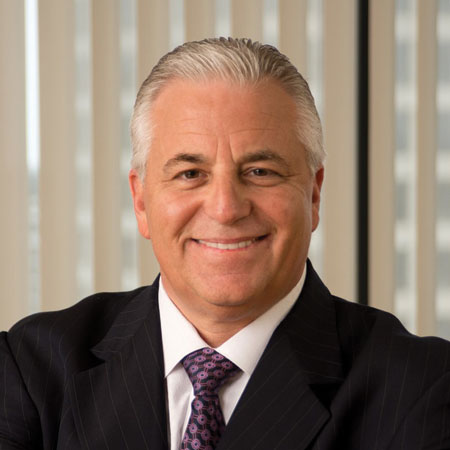Hindsight 20/20: Raymond Cohen
Executive Summary
Hindsight 20/20 is a new Q&A feature where medtech industry veterans share their long experience taking diverse businesses – be they start-ups or publicly-listed entities – from strength to strength and navigating through times of crises. This first instalment shines the spotlight on Raymond Cohen, who is currently CEO of venture-backed sacral neuromodulation company Axonics Modulation Technologies, Inc. The advice he gives includes not rushing into clinical studies too soon, try to go big with the fundraising and be very cautious when tackling a complex market like the US, among other things.
With around three decades of experience in the medical device industry, Raymond Cohen is recognized for having led several start-ups developing disruptive, technological innovations to growth and has also sat on the board of various publicly-listed entities. He is currently CEO of Axonics Modulation Technologies Inc., a California company developing a rechargeable sacral neuromodulation technology to treat urinary and fecal dysfunction. He recently took the firm through a $35m series C financing round. He was previously CEO of other neuromodulation companies including renal denervation firm Vessix Vascular Inc. , which was acquired by Boston Scientific for $425m in 2013.
Cohen's experience stretches beyond the US, having been on the board of directors of several European firms in the cardiovascular intervention space, among other things.
Raymond Cohen, CEO of Axonics Modulation Technologies, Inc. "Forget dilution and raise as much money as you can, as early as you can. Time is of the essence and velocity is important." Source: Raymond Cohen
Going to the clinic for a human study with a product that is not a commercial-grade product fundamentally guarantees that you will have problems and have you hope that none of the compromises you made affect patient safety. The easiest way to kill a company and dampen investor support is to have a safety issue. And besides, do you really want to spend time making excuses for the ugly duckling product?
Study designs tend to have objectives that are beyond what is required as an initial step. This is sometimes a function of an executive being advised by overzealous clinical/regulatory consultants or investors. The thing I hear often is “that’s just the way it’s done.” Hogwash. Sure, there are some rules. However, clinical and regulatory folks often work off of what they heard or learned – good or bad – at their last company and have a tendency to spit it back out as gospel. You have to ask yourself – is there really anything more to prove in this first study other than that the product is safe and works as designed? Of course, you want to see efficacy, but that will be there assuming the device works.
I have also observed folks engaging CROs on the assumption that “this is the way it’s done,” or that a CRO is necessary, or that the CRO will bring expertise that the early-stage company may not have on the team. Hiring a CRO is a sure-fire way to ensure a study will be expensive since CROs bill by the hour. The entire study process, from filings with Ethics Committees, etc. will, no doubt, take longer than desired and be more complex. There’s a role for CROs but it shouldn’t be the first thought. CROs are great for monitoring, but they don’t drive enrollment and won’t be able to handle physician investigators who will want to enroll patients that they feel will benefit from the therapy even if it doesn’t quite meet up with the inclusion/exclusion criteria.
Bottom line: No third party is going to care more about your product and your patients than the company and its representatives. My advice is to hire good people and do the majority of the tasks yourself. A virtual clinical department is, in my view, a fantasy and turns out to be much more expensive. When you do things yourself, you will learn everything there is to know about how folks use the product and how patients react.
3 in 30: Three quick-fire questions in 30 seconds
What do you do to help unwind from the stresses of your job?
On a regular basis, I enjoy socializing with friends and following major league baseball. My favorite activity is fly fishing which is a wonderful way to clear one’s mind.
Who, outside the medtech industry, do you see as a role model and why?
As a young person, it was hall of fame baseball player, Roberto Clemente. In addition to being a great player, he was a true gentleman who was deeply involved in charity work. His humanitarian efforts ultimately cut short his life at 38 years old when he died in a plane crash en route to help earthquake victims in Central America.
From a business perspective, given I’m a huge fan of great product design, I’d say Steve Jobs.
If you weren’t running medtech companies, what would have been your career Plan B?
I’m not much for Plan Bs but my fantasy job is to be the general manager of the Los Angeles Dodgers. Although running a minor league baseball team would be fun!
Fourth, I want the most creative regulatory professional who knows how to get things done, Fifth, I want an in-house intellectual property attorney on staff. Sixth, I want a clinical person who knows how to run clinical operations. And finally, I want a finance person who can do modeling and manage the finances. Lastly, I want to engage two outside groups – a stable of KOLs in the field to provide input from the medical side of things and a great industrial design firm who can do the end-user research and then help translate that into the actual product design. What you don’t need is sales or marketing talent to start with.
I have recently lived through such a crisis in my role as a chairman in one publicly-listed company. It’s a cautionary tale where two major mistakes led to the elimination of $200m in shareholder value. The first mistake stemmed from management not being clearheaded about the usability of the product, and the second was going too wide and too soon in its US market adoption strategy. Clearly, the board of directors bears responsibility for strategy, however, the board is not management and must rely on the folks operating the business to understand the product pros and cons, competitive landscape and market dynamics.
The result of pursuing this strategy was a cash burn of around $50m in two years. Anytime you introduce a new product into a market, especially one as big at the US, one should focus on a specific geography or region to ensure that you gain proper market feedback before dozens of sales and field support personnel are hired. In this story, management was ambitious and overconfident. They learned too late that the product, while performing quite well clinically, was not as easy to use as demanded by the market. This resulted in the need to “re-work” the part of the implant delivery system – never a quick solution – and forced a complete retreat from the US market and a retrenchment back to the company's roots in the UK. It’s an unfortunate story since over a hundred good people lost their jobs through no fault of their own and shareholders lost money.
The company is alive today based on a strategic partnership with a large international medical device firm that provided much needed capital, so the final chapter is yet to be written and the company, while diminished, and under new management, lives to fight another day.
This company is not alone and I am surprised to see quite a few companies make the same mistakes, driven by many factors and, in my experience, by ambition to a large extent. The moral is, don’t let the demands to grow your business get in the way of ensuring your product is “hardened” and you have covered all your bases before you go wide with an expeditionary force in a large and unwieldy market such as the US.
From the editors of Clinica
